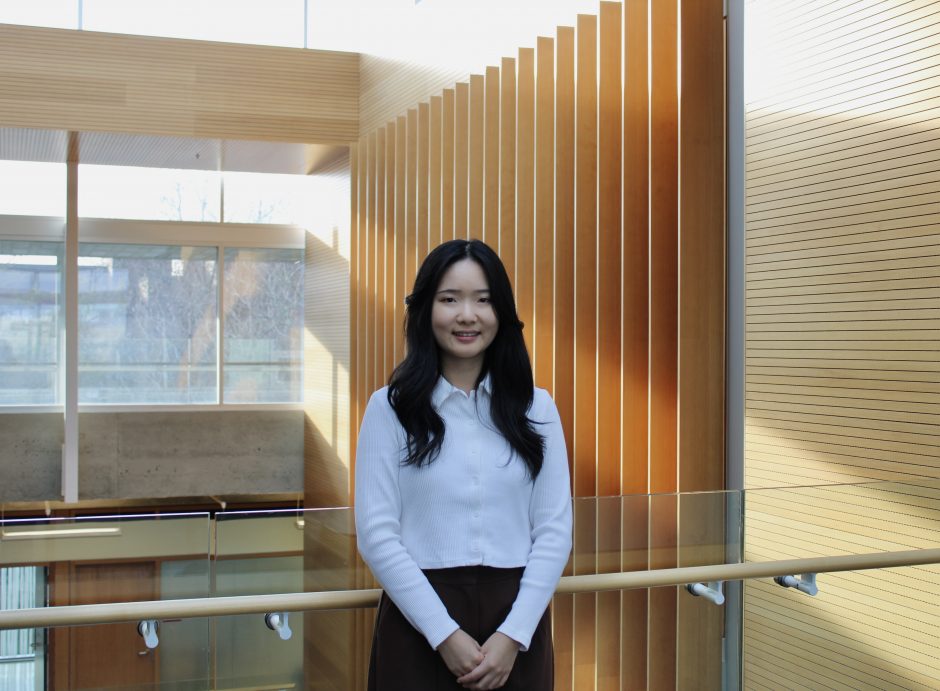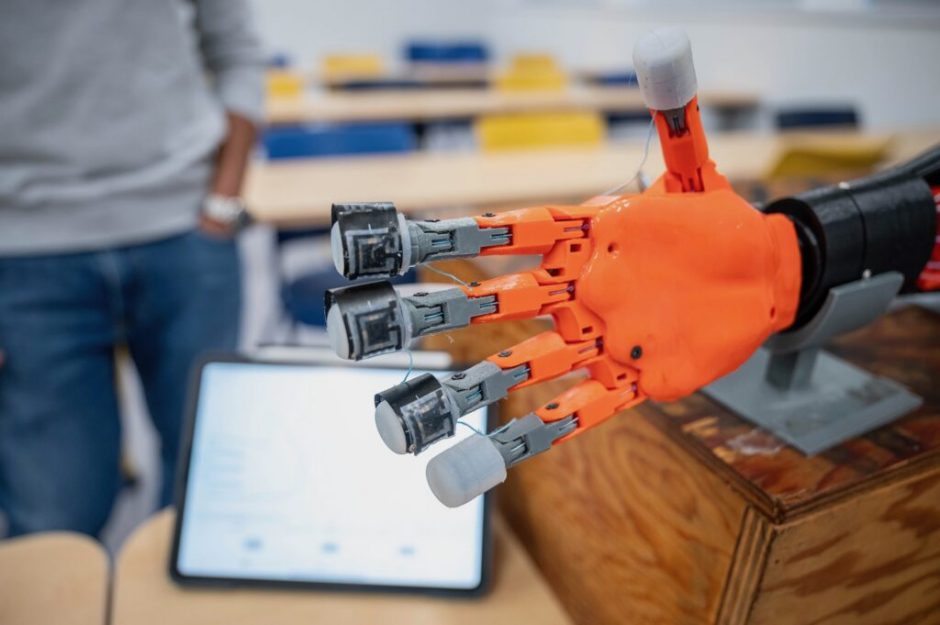
Lufei Liu is a 4th year PhD student in computer architecture, advised by Professor Tor Aamodt. Lufei completed her bachelor’s degree in electrical engineering at UBC in 2020, where she then directly started her PhD program.
Lufei’s research primarily focuses on GPU (graphics processing unit) hardware architecture, specifically with computer graphics and hardware acceleration of ray tracing. Ray tracing is a technique for computer graphics rendering that involves tracing simulated light paths (rays) through 3D-modelled scenes to gather realistic shadow and lighting effects as these rays interact with the environment. Lufei and her research team members investigate ray tracing accelerators in GPUs and propose hardware modifications that could speed up ray tracing workloads.
Are there areas of your research people wouldn’t expect?
Although my research is focused on hardware, I primarily work with software and write C++ code to simulate hardware behaviour. C++ is an object-oriented programming language commonly used for applications that require more control over hardware resources. Surprisingly, we can evaluate many interesting hardware techniques without taping out a chip, which refers to when the hardware design for an integrated circuit (chip) is complete and ready to be sent to the fabrication facilities for physical production.
What impact could this research have?
We hope to influence the design of future devices, particularly in the AR/VR field. Ray tracing can bring the level of realism needed for the virtual world, but high-quality graphics rendering at the frame rates required for headsets is still a very difficult task. Reducing inefficiencies and introducing clever optimizations through hardware can really make a difference here.
What are your future research/work plans?
After my PhD, I plan to work in an industry research lab. As a student, it can sometimes be difficult to understand the proprietary systems that real devices are using, which hinders our research efforts. In the future, I hope to work on research beyond these constraints.















